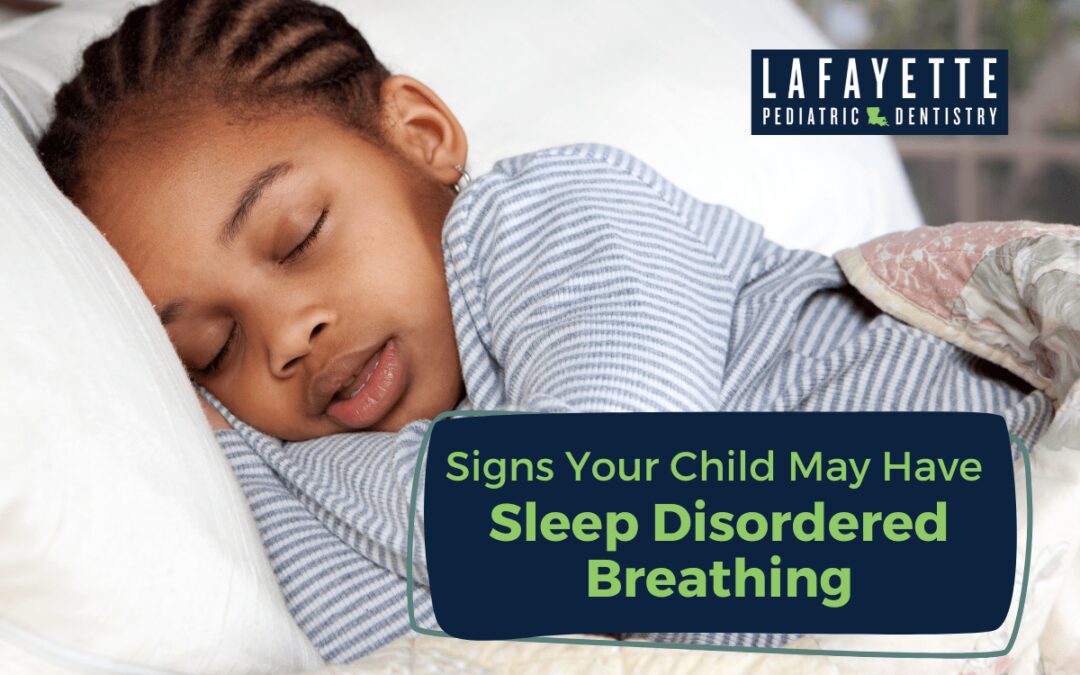Does your child grind their teeth or breathe through their mouth? Do they still seem tired after a full night’s sleep? If so, these could be red flags for sleep disordered breathing, a common issue that is often overlooked in children.
Sleep disordered breathing is an early warning sign of sleep apnea, a condition where breathing is disrupted during sleep. While sleep apnea is typically associated with adults, it can also affect children, though the signs may appear different.
The impacts of untreated sleep disordered breathing and sleep apnea on kids can be far-reaching, negatively affecting their growth, learning, and overall health. The good news is that it can be diagnosed and addressed early.
Identifying the signs is key so you can take action before sleep disordered breathing leads to bigger problems down the road. Read on to learn more about the impacts, symptoms, and what to do if you think your child may have sleep disordered breathing.
Sleep Disorders Can Stunt Your Child’s Development
The first five years of a child’s life are a period of explosive brain development. In fact, 90% of brain growth occurs during early childhood. This makes quality sleep vitally important during the early years.
When children have sleep disordered breathing, their sleep is fragmented, decreasing crucial REM (rapid eye movement) sleep. Since REM sleep facilitates cognitive growth, mood regulation, and memory formation, disrupted sleep can impair these critical developmental processes.
They can suffer from daytime sleepiness, behavioral problems, poor academic performance, impaired cognitive skills, and even anxiety or depression.
Fortunately, treating sleep disordered breathing early can help ensure healthy development during these foundational years. Restful sleep allows young children’s brains to grow and strengthen properly.
Spotting the Signs of Sleep Disordered Breathing in Children
Sleep disordered breathing in children can manifest in various symptoms. Being aware of the following signs can help with early detection:
– Loud or heavy breathing
– Tongue tie
– Mouth breathing (breathing through an open mouth day and/or night)
– Grinding teeth at night (bruxism)
– Frequent restless or disrupted sleep
– Sleeping with a hyperextended neck (head “thrown” backwards) position
– Dark circles under eyes indicating lack of quality sleep
– Increased sleepwalking at night
– Bedwetting, especially if the child was previously dry through the night
– Tiredness
– Hyperactive behavior or having trouble paying attention during the day
– Inability to breathe through the nose when not congested
While all children may experience some of these occasionally, chronic or severe symptoms could signal an underlying sleep breathing disorder. If you notice several of these symptoms in your child, discuss them with us or with your pediatrician or pediatric dentist.
Conditions Linked to Sleep Disordered Breathing
Sleep disordered breathing does not always occur in isolation. It is commonly associated with several other conditions, including:
– Attention deficit/hyperactivity disorder (ADHD)
– Chronic allergies and asthma
– Behavioral disorders
– Restless leg syndrome
– Obesity
– Chronic swollen tonsils and/or adenoids
If your child is diagnosed with sleep disordered breathing, be aware it may be tied to or impacting these other conditions. A comprehensive treatment approach can help address all of their interconnected symptoms and issues.
Read also: Tongue-Tie in Infants and Young Children: Signs to Look Out For
Take Action Early
Sleep disordered breathing in children is highly treatable, especially when caught early. Our pediatric dental specialists at Lafayette Pediatric Dentistry have extensive expertise in diagnosing sleep disordered breathing in children. We can also recommend the best course of action to treat the condition.
If your child exhibits potential symptoms of disordered breathing or sleep disruptions, please contact our Lafayette office right away. We also serve patients from the surrounding areas, including Breaux Bridge, Broussard, Youngsville, and Carencro.
We look forward to partnering with you to ensure your child’s health and well-being stay on track.
